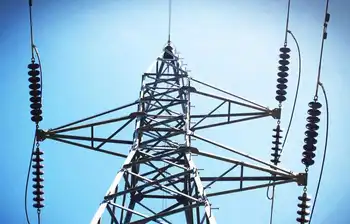"Earth Hour" goes global
SYDNEY - LONDON - SAN FRANCISCO - The Sydney Opera House to San Francisco's Golden Gate Bridge went dark as people switched off lights in their homes and skylines dimmed around the world March 29 to show concern with global warming.
Up to 30 million people were expected to have turned off their lights for 60 minutes by the time "Earth Hour" - which started in Suva in Fiji and Christchurch in New Zealand - completed its cycle westward.
More than 380 towns and cities and 3,500 businesses in 35 countries signed up for the campaign that is in its second year after it began in 2007 in Sydney, Australia's largest city.
"Earth Hour shows that everyday people are prepared to pull together to find a solution to climate change. It can be done," said James Leape of WWF International, which was running the campaign.
Lights at Sydney's Opera House and Harbour Bridge were lowered as Australians held candle-lit beach parties, played poker by candlelight and floated candles down rivers.
In Bangkok, some of the city's business districts, shopping malls and billboards went dark, although street lights stayed on. One major hotel invited guests to dine by candle light and reported brisk business.
In Copenhagen, the Tivoli Gardens and the Royal Palace and the opera darkened for an hour, along with many street lights.
"In the central square a lot of people were standing looking at the stars," said Ida Thuesen, spokeswoman for WWF Denmark. "It's not often you can see the stars in a city."
In a tip of its virtual hat to the event, the background of Google's home page turned to black from white on more than a dozen country sites including Google.com. A message on the site read: "We've turned the lights out. Now it's your turn." and directed visitors to conserve energy when using computers.
Floodlights went out at landmarks in Budapest, including its castle, cathedral and parliament.
In Britain, 26 town and city councils signed up to switch off nonessential lights as did several historic buildings, including Prince Charles' private residence Highgrove House, London City Hall, Winchester Cathedral and the Government Communication Headquarters radio monitoring station. The south coast town of Brighton turned off the lights on its pier.
The movement crossed the Atlantic to the United States and Canada, where the 1,815-foot (553-metre) CN Tower in Toronto and the surrounding skyline were plunged into temporary darkness.
In Toronto, many restaurants offered candlelight dining. The golden arches at a corner McDonalds were dark, though the restaurant itself was brightly lit. Supporters held "dark parties," glow-in-the-dark soccer games and lantern walks.
News helicopters swooped low over city streets, where banks had switched off the neon signs atop their skyscrapers.
Landmarks such as San Francisco's Golden Gate Bridge and Chicago's Sears Tower went dark in the closing hours of Saturday's round-the-world event.
"It is not just about turning off the lights, it is about raising awareness," San Francisco Mayor Gavin Newsom said. "Energy efficiency is low-hanging fruit. Energy efficiency is the easiest thing we can do" to reduce global warming.
Buildings account for about one-third of the carbon emissions that scientists say will boost global average temperatures by between 1.4 and 4.0 degrees Celsius this century, bringing floods and famines and putting millions of lives at risk.
Organizers of Earth Hour said that while switching off a light for one hour would have little impact on carbon emissions, the fact that so many people were taking part showed how much interest and concern at the climate crisis had taken hold. They said they plan a similar event March 28, 2009.
Related News

Calgary's electricity use soars in frigid February, Enmax says
CALGARY - February was so cold in Calgary that the city used enough extra energy to power 3,400 homes for a whole year.
Enmax Power Corporation, the primary electricity utility in the city, says the city 's energy consumption was up 22,000 megawatt hours last month compared with Februray 2018.
"We've seen through this cold period our system has held up very well. It's been very reliable," Enmax vice-president Andre van Dijk told the Calgary Eyeopener on Friday. "You know, in the absence of a windstorm combined with cold temperatures and that sort of thing, the system has actually held up pretty…




